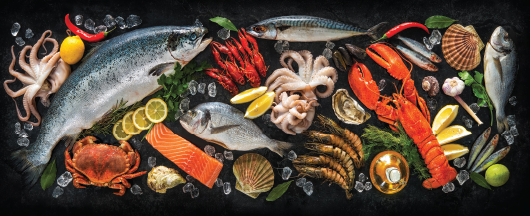Could relief for rheumatoid arthritis (RA) symptoms be as close as the nearest seafood restaurant? Possibly, say researchers from Harvard.
University who recently conducted a cross-sectional study. Published in the March issue of Arthritis Care & Research, the research examined whether consuming fresh fish could ease RA symptoms.1
Previous studies have examined the role fish oil may play in reducing RA symptoms, but this was the first to look at whether consuming fresh fish as a whole food could provide the same benefits as a fish oil supplement.2
Sara Tedeschi, MD, a rheumatologist at Brigham and Women’s Hospital in Boston and the study’s lead author, says researchers assessed 76 patients with moderate RA who were part of a larger heart disease study. A questionnaire looked at their diets over the past year and asked how frequently they ate fish.
As with fish oil supplements, the benefits of eating fresh fish are thought to stem from the anti-inflammatory effects of omega-3 fatty acids.
“We found people with RA who ate fish at least twice a week reported less joint swelling and tenderness than those who rarely or never consumed fish,” Dr. Tedeschi says.
Researchers looked specifically at responses to questions on how often people ate tuna, salmon, sardines and other fish, such as halibut, sole and grouper, that was prepared raw (poke), broiled, steamed or baked. Shellfish (such as shrimp, scallops and crab), fried fish and fish in mixed dishes were all excluded.
Dr. Tedeschi says she and her colleagues measured RA disease activity severity using the Disease Activity Score 28-C-Reactive Protein (DAS28-CRP) metric, which measures tenderness, pain and inflammation throughout a patient’s body. Patients in the study had a median DAS28-CRP score of 3.5, indicating moderate RA.
“Eating fish at least twice a week resulted in a reduction of nearly half a point in the DAS28-CRP score compared with eating it once a month or not at all,” Dr. Tedeschi says. “In addition, every additional portion of fish consumed each week was associated with a 0.18 drop in DAS28-CRP scores.”
‘Every additional portion of fish consumed each week was associated with a 0.18 drop in DAS28-CRP scores.’ —Dr. Tedeschi
An Alternative to Supplements

Alexander Raths / shutterstock.com
Because the study was a cross-sectional analysis rather than an intervention study, Dr. Tedeschi says additional research is needed to confirm the link between regular fish consumption and RA, and whether consuming fish actually causes the RA symptom improvement.
“It’s possible the people we studied with RA who ate fish two or more times a week were also doing other things, such as getting regular exercise or eating a better overall diet, that contributed to the decrease in their RA symptoms,” Dr. Tedeschi says. “We hope to see longer and more in-depth studies that examine how fresh fish might reduce RA symptoms.”
Dr. Tedeschi acknowledges the group that ate fish more frequently had some traits that might be associated with improved disease activity, including higher socioeconomic status and a lower body mass index, but they also had the highest prevalence of smoking and the longest disease duration.
For now, Dr. Tedeschi says rheumatologists may consider recommending their RA patients increase their consumption of non-fried fish, along with medication, as part of their overall treatment plan.
Not many studies have looked at recommended foods for patients with RA, but Dr. Tedeschi says an anti-inflammatory diet, such as the Mediterranean diet, loaded with fish, whole grains, veggies, fruits, nuts and beans, has been shown to help those with arthritis as well as heart disease and other health conditions. The Arthritis Foundation endorses the Mediterranean diet for those with arthritis.
“[Because] patients with RA and other chronic inflammatory conditions are often at a higher risk of heart disease, eating fresh fish as part of a healthy diet can also reduce their risk of heart attack,” Dr. Tedeschi says.
The American Heart Association also recommends consuming 3.5 oz. of fish rich in omega-3 fatty acids at least twice a week.
Linda Childers is a health writer located in the San Francisco Bay Area.
References
- Tedeschi SK, Bathon JM, Giles JT, et al. Relationship between fish consumption and disease activity in rheumatoid arthritis. Arthritis Care Res. 2018 Mar.70:327–332.
- Proudman SM, James MJ, Spargo LD, et al. Fish oil in recent onset rheumatoid arthritis: a randomized, double-blind controlled trial within algorithm-based drug use. Ann Rheum Dis. 2015 Jan;74(1):89–95.


